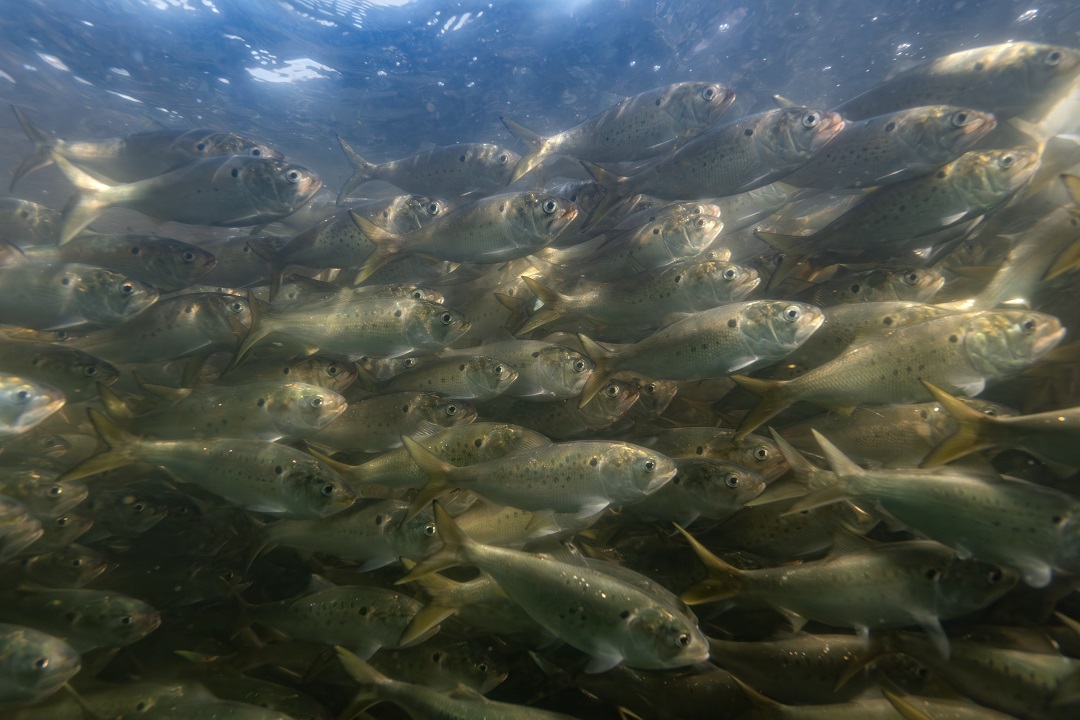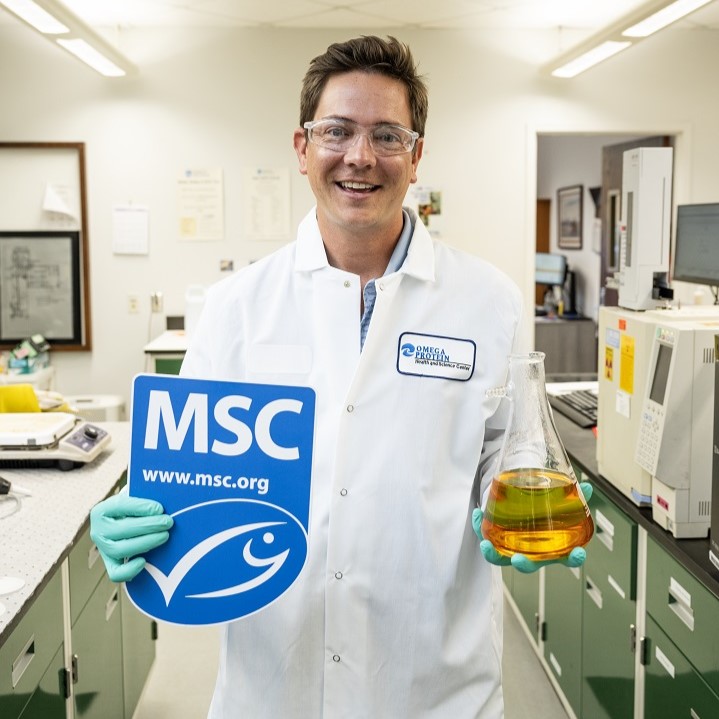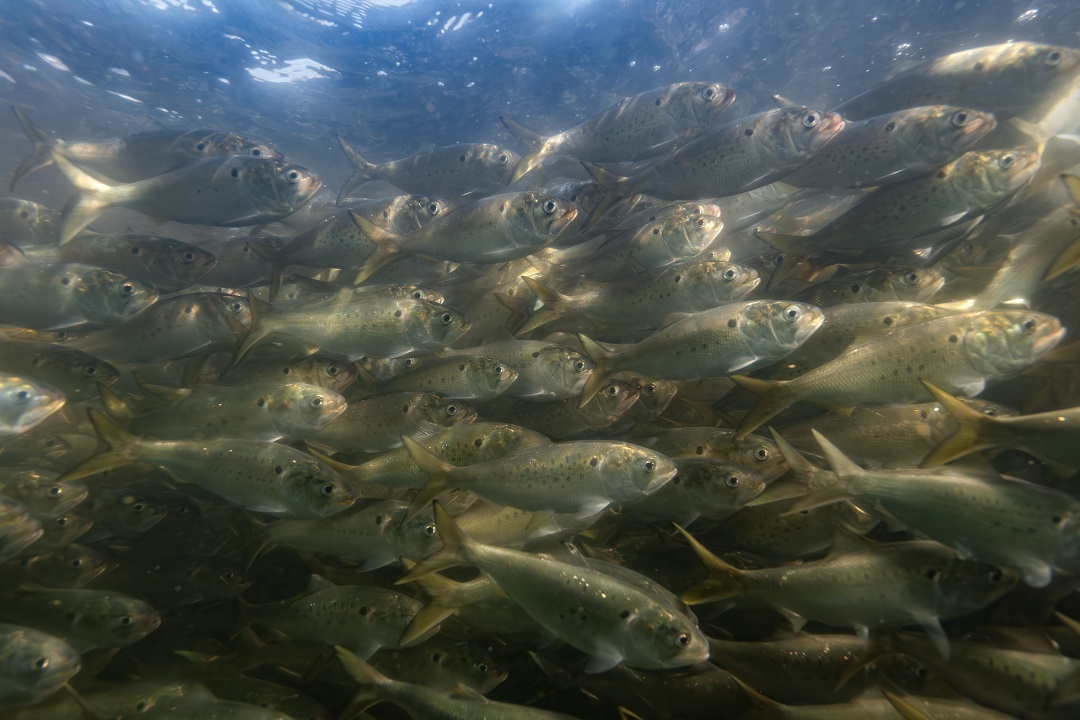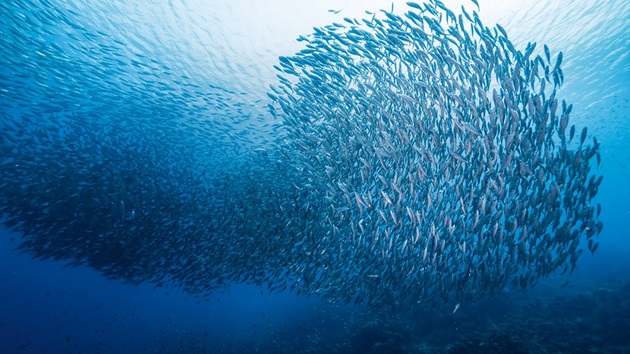In short, yes; reduction fisheries can absolutely be sustainable. As long as they are well managed and fished within sustainable limits, reduction fisheries can be just as sustainable as any other fishery.
But let’s start at the beginning…
What is a reduction fishery?
Most fisheries target species that are eaten directly by people, as fillets, in cans, or in soups or sushi rolls.
Reduction fisheries are different. Here, the fish gets "reduced" into fishmeal and fish oil that serves a different, but equally important, purpose.
Fish oil typically goes into supplements for humans. Fishmeal is mostly used for other animals; it’s often used as feed for livestock and farmed fish as well as in pet food.
Reduction fisheries typically catch small fish (like anchovies, herring, or menhaden) which are all rich in good fats, vitamins, and minerals.

How do reduction fisheries impact ecosystems?
These small fish are an important food source for many other animals, from larger fish to sea birds. This means that overfishing could have big impacts higher up the food chain.
To make sure there are always enough fish left in the sea, MSC certified reduction fisheries take an extremely cautious approach to fishing. They set catch limits much lower than what would be sustainable for other species.
And as with all MSC certified fisheries, they must prove that their fishing does not have a negative impact on the ecosystem.
Should we use fish for animal feed?
Some people worry about using fish in animal feed instead of only for human consumption.
But many reduction fisheries do both. In addition to fishmeal, they supply fish oil for supplements used by humans. It's also important to remember that there are many fisheries that target the same fish directly for human consumption. Think: a tin of sardines, a jar of anchovies, or a package of smoked mackerel.

Regardless, the MSC doesn’t try to advocate for or against eating any particular species of fish. We want all fishing activity, whatever its context or end product, to be sustainable.
Are there MSC certified reduction fisheries?
Yes! There are MSC certified reduction fisheries targeting krill, herring, sardines, and menhaden.
Most MSC certified fishmeal and fish oil, however, is made from by-products of species caught for human consumption (like pollock or cod). All these fisheries have undergone rigorous, independent assessment.
Two of the largest sources of fishmeal and fish oil come from the United States. The first is menhaden caught on the East Coast and in the Gulf of Mexico. The second is by-products from the processing of Alaska seafood.

Final thoughts…
There are legitimate concerns about the practices of some reduction fisheries. However, it is important to recognize that the market for marine ingredients, including fishmeal and oil, is growing. And we know that reduction fisheries can be managed sustainably.
To maintain fish populations and support a healthy ocean, we believe sustainable fisheries should be recognized for their efforts. Recognition can encourage more responsible fishing practices worldwide. And we believe that any fishery, regardless of size, gear type, or end product, can be done sustainably.
--
Since this article was originally published in 2019 by former MSC employees Emily McGregor and Philippa Kohn the MSC has partnered with MarinTrust. In December 2024, the MSC and MarinTrust signed a Memorandum of Understanding (MoU) to enhance cooperation within the marine ingredient supply chain. The agreement aims to improve understanding of both MSC and MarinTrust programs, reduce duplication, and create efficiencies for marine ingredient producers.
Originally published in 2019 by former MSC employees Emily McGregor and Philippa Kohn. Updated by Emily Wyatt in January 2025.


